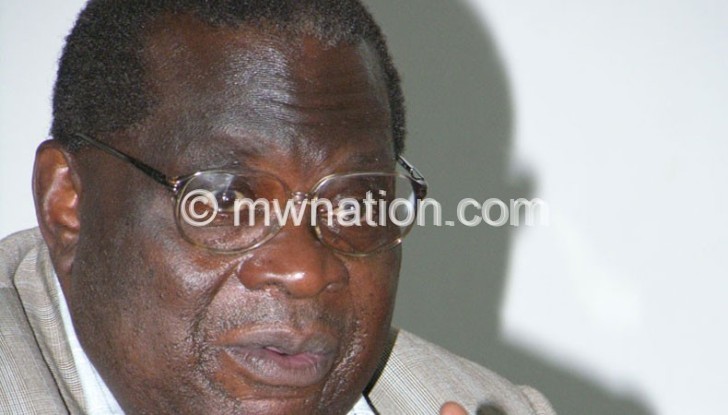Report paints gloomy picture for APM in 2016
President Peter Mutharika is in for a tough ride in 2016 with economic hardships likely to cause instability for his ruling Democratic Progressive Party (DPP), projections by the Economic Intelligence Unit 2016 Country Report have suggested.
The London-based acclaimed think-tank’s report on the economy, contradicts the stance by Finance, Economic Planning and Development Minister Goodall Gondwe, who in interviews on 2016 prospects, painted a rosy picture, predicting the stabilisation of the economy by April.

Gondwe has since said the report addresses projections which the International Monetary Fund (IMF) already addressed.
But according to a 2016 outlook on Malawi by the institution, Mutharika is likely to struggle to govern due to worsening economic conditions such as soaring living conditions, which the report claims might lead to resentment of his government.
Additionally, the report says, diverse weather conditions caused by El Nino will slow down the economy and weaken agriculture exports.
However, the report says, despite Mutharika likely to come under enormous pressure in 2016-the third year of his rule will not end in any push for his exit due to unpopularity of the opposition.
The report says both the main opposition Malawi Congress Party (MCP) and former president Joyce Banda’s People Party (PP) are not in a position to seriously challenge for power.
But the report has predicted popular protests will be largely driven by attempts to secure concessions from the government by the civil society.
It reads in part: “Amid soaring living costs and widespread corruption, the President, Peter Mutharika, will face challenges in rebuilding popular trust in State institutions, but underlying political stability is expected to remain intact. A split Parliament will slow down policymaking.
“This, coupled with the authorities’ limited financial capacity to respond to economic challenges, will fuel popular resentment and lead to possible outbreaks of unrest.”
The think-tank notes that the economy is poorly diversified; hence, vulnerable to external shocks with inflation forecast to reach 22.9 percent in 2016 on the back of soaring food prices.
“The fiscal deficit is forecast to contract gradually to 3.6 percent of GDP in 2020. We expect donor aid freezes to be slowly lifted, although this remains contingent on further efforts to improve public financial management. Real GDP growth will remain subdued in 2016, at 3.2 percent, before picking up to a yearly average of 5 percent in 2017,” reads part of the report.
“Thereafter, tight fiscal and monetary policies will gradually ease prices pressures, with inflation expected to fall to single digits in 2019 20. We expect the current-account deficit to contract gradually to 14.6 percent of GDP in 2020,” reads part of the report.
Reacting to the economic aspects of the report, Gondwe said none of the contents of the report comes as a surprise as IMF has made similar projections.
Quizzed on whether the report contradicts his stand that the economy is poised to stabilise by April, Gondwe said his sentiments acknowledged that adverse weather conditions might affect the prospects.
“Everybody knows that if we do not have good rains we will struggle. The figures they are quoting are the same already published by IMF, I have stated that the economy will improve if certain conditions are conducive; the Reserve Bank Governor has also stressed that point, that should be public knowledge already,” he said.
MCP spokesperson Jessie Kabwila described the report as interesting but challenged the assertion that the opposition was weaker.
“MCP should not be judged solely on the performance of the last elections. The post election period has seen a lot of changes which have increased our popularity and as a party, we have worked and we are still working on strategies to ensure we rebuild and grow stronger.
“We are certainly not weak because the way we have been influential in Parliament we have also demonstrated that we are a responsible party that is full of ideas and ready to govern,” said Kabwila.
The annual report comes as crop production already appears to come under severe strain amid an erratic rainfall pattern, leading to fears of looming hunger and dwindling exports. n





